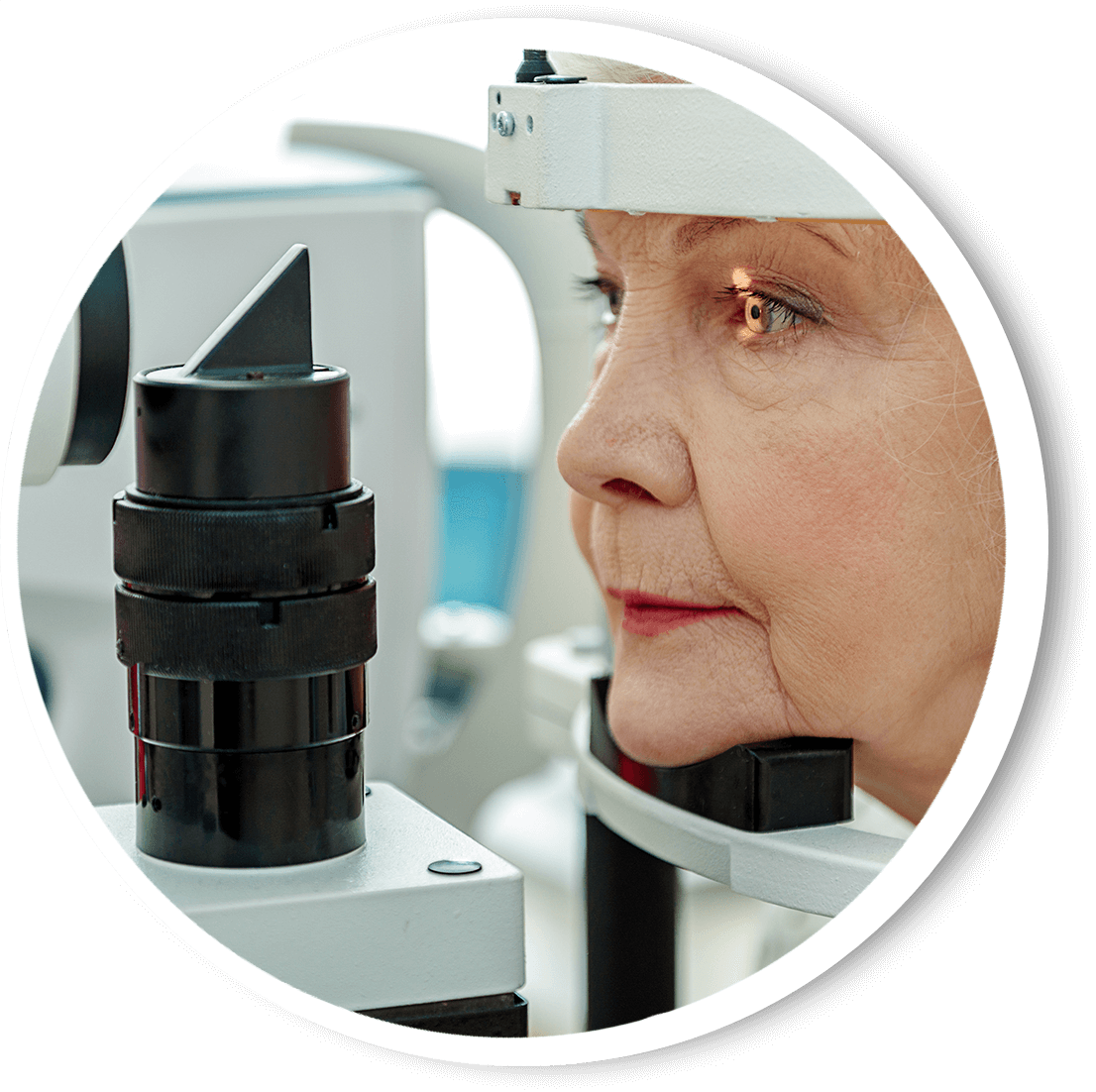Cataract Evaluation
Cataract Evaluation Services
A cataract is a cloudy, dense area that develops in the eye lens. Proteins form clumps that prevent you from being able to see clearly. If you experience blurry vision, you may be experiencing the early stages of cataracts. The good news is that cataracts are treatable. Gulf Coast Vision Center offers comprehensive cataract evaluation services in Pensacola, Florida.
Our eye doctors can assess your condition and recommend the right treatment to correct the problem. With the right treatment, you can regain your vision. To find out more about treatment options and schedule a cataract evaluation, contact Gulf Coast Vision Center at one of our locations in Pace, Crestview or Pensacola.

What Is a Cataract Evaluation?
During your cataract evaluation, we perform a series of exams to determine your visual acuity, light sensitivity, pupil dilation and the overall condition of the cataract. Assessments can last three to four hours, depending on the type of assessments we need to perform. The outcome of the initial tests may determine what other testing or procedures are necessary to correct the problem.
Open communication is essential during evaluations. We will ask you questions about how your condition is interfering with your vision and daily activities, and we encourage you to speak openly about your cataracts and ask questions about your condition and treatment options. We are committed to providing you with as much education as possible and providing you the most comprehensive eye care.
Cataract Evaluations We Perform
To properly diagnose your cataracts, our doctors need to perform a series of evaluations, which give us a clear understanding of your condition. Cataract evaluations may include:
Visual Acuity Test
Visual acuity refers to your ability to discern the shapes and details of the things you see. A visual acuity test is an eye exam that checks how well you see the details of a letter or symbol from a specific distance. It's one factor in determining the quality of your overall vision. Others include color vision, peripheral vision and depth perception.
Refractive Error Measurement
A refractive error occurs when your eye does not properly bend the incoming light as it passes through the cornea. It fails to create a sharp, clear focus on your retina. The test will indicate what lens prescription you need in order to have normal 20/20 vision. We may use several methods to measure refraction or the refractive error.
Retinal Exam
A retinal examination allows us to evaluate the back of your eye, including your retina, optic disk and the underlying layer of blood vessels that nourish the retina (choroid). We dilate the pupil with eye drops that keep the pupil from getting smaller when your doctor shines light into the eye. Assessment includes a direct examination, indirect examination and a slit-lamp exam.
Eye Pressure Measurement
The pressure in your eyes is referred to as intraocular eye pressure (IOP). If your eye pressure is higher than normal, you may be at risk of developing cataracts. High eye pressure can damage the delicate nerve fibers in the back of your eye, sometimes resulting in blindness. We assess the pressure inside your eyes by measuring the resistance of your cornea to indentation.
We evaluate the level of vision changes caused by the cataract, and we will discuss any diminished daily activities due to the decrease in vision caused by the cataract. If necessary, we will coordinate an evaluation with a surgeon to remove and replace the cloudy natural lens with a crystal-clear implant.
Schedule a Cataract Evaluation Today
Contact Gulf Coast Vision Center today at one of our five locations for a cataract evaluation in Pensacola, Florida.
